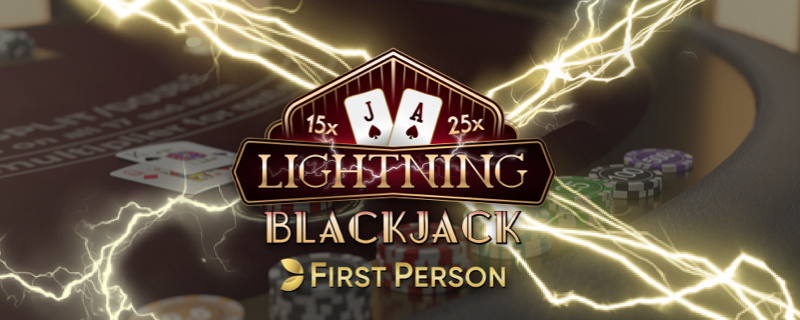BETDAQ TRADER INTERVIEW: In the latest of our series of interviews with BETDAQ traders Stephen Maher catches up with tennis trader DAN WESTON to find out how he approaches trading on BETDAQ.
Stephen Maher: So, for anyone that doesn’t know you, can you tell us a bit about yourself and how you got into betting?
Dan Weston: I’m Dan Weston and I’m a 37 year old Tennis analyst & trader from Preston, England. I’ve always had a maths background and during my degree in Accounting & Finance I met several professional gamblers, who showed me how it was possible to beat gaming machines in pubs using nothing more than your intelligence and skill. This was an excellent introduction to the gambling world, as it taught me the value of discipline at a very young age, and the effect that a lack of discipline (for example playing the wrong machine, or not knowing when the optimal time to quit a unit) would have.
Stephen Maher: Why tennis? How long did it take you a notice that tennis was the sport to trade for you?
Dan Weston: I graduated into the online poker world and was quite happy multi tabling mid stakes 6 max No Limit Hold’Em full time until the USA passed an act (literally overnight, with no notice) banning US players from the online poker world. This changed the dynamic immediately and dramatically reduced the edge that I had at those levels.
Due to this, I was keen to look at other angles, and was fully aware of betting exchanges by this point, and started (relatively unsuccessfully) betting/trading on football. Then one day I discovered Tennis Insight, which at that point in time was a truly incredible resource for me, and threw my efforts into learning the Tennis markets and the specific nuances of each player.
Stephen Maher: How many hours per day do you spend trading? Also what software would you recommend is best for trading?
Dan Weston: It’s difficult to specify the amount of hours per day I’ll spend trading. I’ll target certain tournaments which suit my trading style and time zone more, and my style is generally one where I’ll wait for specific situations to manifest themselves, so it frequently is quite a waiting game. This actually fits in quite well with running the website & collecting of data as I can work in both areas alongside each other on a daily basis.
Regarding software, obviously I’m going to recommend my own TennisRatings products, particularly the lead loss/recovery data which is essential to my identification of market entry points, and I’m also a fan of Bet Angel as a trading software provider.
Stephen Maher: What would your opinion be on courtsiding? And what do you think it does for the market? Does it help it or have a negative impact?
Dan Weston: I have no issue whatsoever with courtsiding. If someone is that technologically advanced and driven enough to go to matches, or employ people to do it on their behalf, then good luck to them. It’s survival of the fittest in this game. I also think if somehow it was made impossible – which is very unlikely – it would have a negative effect on liquidity. As I mentioned earlier, my style is weighted towards entering the market in specific semi flexible pre-planned scenarios (usually at end of games) as opposed to being the first one into the market point by point, so courtsiding doesn’t have a huge impact on my personal activities.
Stephen Maher: It’s not really a main sport for Betdaq, but what do you think of Betdaq’s tennis markets?
Dan Weston: If I am honest, in the smaller events in particular it has a way to go regarding liquidity. I accept that is a chicken and egg situation though and I would really like this to improve.
Stephen Maher: Actually on the subject of Betdaq markets and courtsiding, did you know that Betdaq has no delay in-running when you make an offer into the market? Not a lot of people actually know that and I think it could help them!
Dan Weston: I actually didn’t know that – many thanks for letting me know!
Stephen Maher: Anyway, what was your biggest loss while trading? Any horror stories?
Dan Weston: I’m quite well disciplined regarding bankroll management with both the machines and particularly online poker being an excellent grounding. For example, in poker it is generally accepted that you need to have 40 buy-ins bankroll to play a specific stake, and this is something I took across to trading. I tend to only risk around 3-4% as a maximum loss on an individual match, which allows me to avoid horror losses.
Of course, a few bad matches in a row still isn’t pleasant, but it is rarely anything close to a disaster. I don’t really like talking figures and definitely don’t like to dwell on losses because they are part and parcel of this game, even the world’s best trader will have some red books.
Stephen Maher: How long did it take you to build tennis ratings and how much work goes into updating it? Do you do it daily or weekly?
Dan Weston: I started TennisRatings as a way of just being able to get some thoughts down onto a blog which enabled me to have a more thorough thought process on matches. I started getting quite a few nice emails and tweets about it, and realised that there was a huge demand for decent tennis data, particularly from an in-play perspective. I’d say that process took around 6-8 months. It’s now a pretty big job – it takes up a good chunk of my day, replying to emails and updating data. Data for the daily spreadsheets is updated daily, and the lead loss/recovery sheets are usually updated on a weekly basis.
Stephen Maher: Anytime I’ve tried tennis it hasn’t went well. Do you have any advice for anyone looking to get in to trading tennis?
Dan Weston: Sure – anyone looking to get into the markets will need to have excellent bankroll management and discipline as a good starting point. Without these you’ll fail no matter what. The amount of people I’ve had contact me and then tell me about tilting their bankroll off when a trade goes against them, or staking 50%+ of their bankroll on one trade is incredible, and sometimes still it’s very difficult to convince them that the right path is slow but sure progress. The markets are very ruthless.
Also I would strongly recommend having an organised plan to trade, and not doing it on an ad-hoc basis. For example, having knowledge of why you are entering a position and having an exit point in mind prior to entry is a valuable asset, and having strong (ideally statistical) reasoning as to why you are making these choices would be ideal. I’m sure there are some people who do very well from in-play reading of matches and players’ body languages, but I’d imagine there are also plenty of traders who over-rate their abilities significantly in this area.
Another very useful piece of advice would be to keep as much data as you can. I cannot tell you how often I’ve used historical data to devise strategies – information is key. Keep records,take screenshots of markets/graphs etc.
Finally, I’m quite happy trading off scoreboards if necessary, and if I’m watching a match I almost always have the commentary on mute. I’ve learnt my lesson many times about listening to commentators – usually something they will say will put me off a position, as opposed to making me take one, but long-term listening to their opinions will be pretty damaging. The vast majority of commentators are on a gravy train based on who they know, or are ex-players, and have no clue regarding betting markets. I remember Greg Rusedski saying that Andy Murray would beat Milos Raonic ’99 times out of 100’ at the O2 in November 2014, when Murray actually was priced at 1.58.
Stephen Maher: Give me an unknown player to follow in 2016?
Dan Weston: 18 year old Taylor Fritz is a huge prospect but will be known to many following tennis, so I’ll go for a more unconventional name – Denis Shapovalov. He’s a Canadian prospect, and at 16 years of age made the semi-final of the Drummondville Challenger several weeks ago, beating ATP semi-regular players Austin Krajicek and Renzo Olivo, and lost narrowly to Dan Evans.
Stephen Maher: See any major changes in the gambling industry in 2016?
Dan Weston: It’s difficult to foresee anything specific. Obviously there are several very high profile mergers going on, so it will be interesting to see any effects from those, and I’ve seen in the past with the US Poker situation that changes in the gambling industry can happen overnight. Having said this, I think it’s more likely than not that the current industry conditions will continue in 2016. My dream would be full access for US citizens to the in-play markets – my general perception of US gamblers is that they have large sums of money and don’t gamble wisely with it.
Many thanks to Dan for his detailed answers. You can follow Dan on twitter @tennisratings
£25 IN FREE BETS








